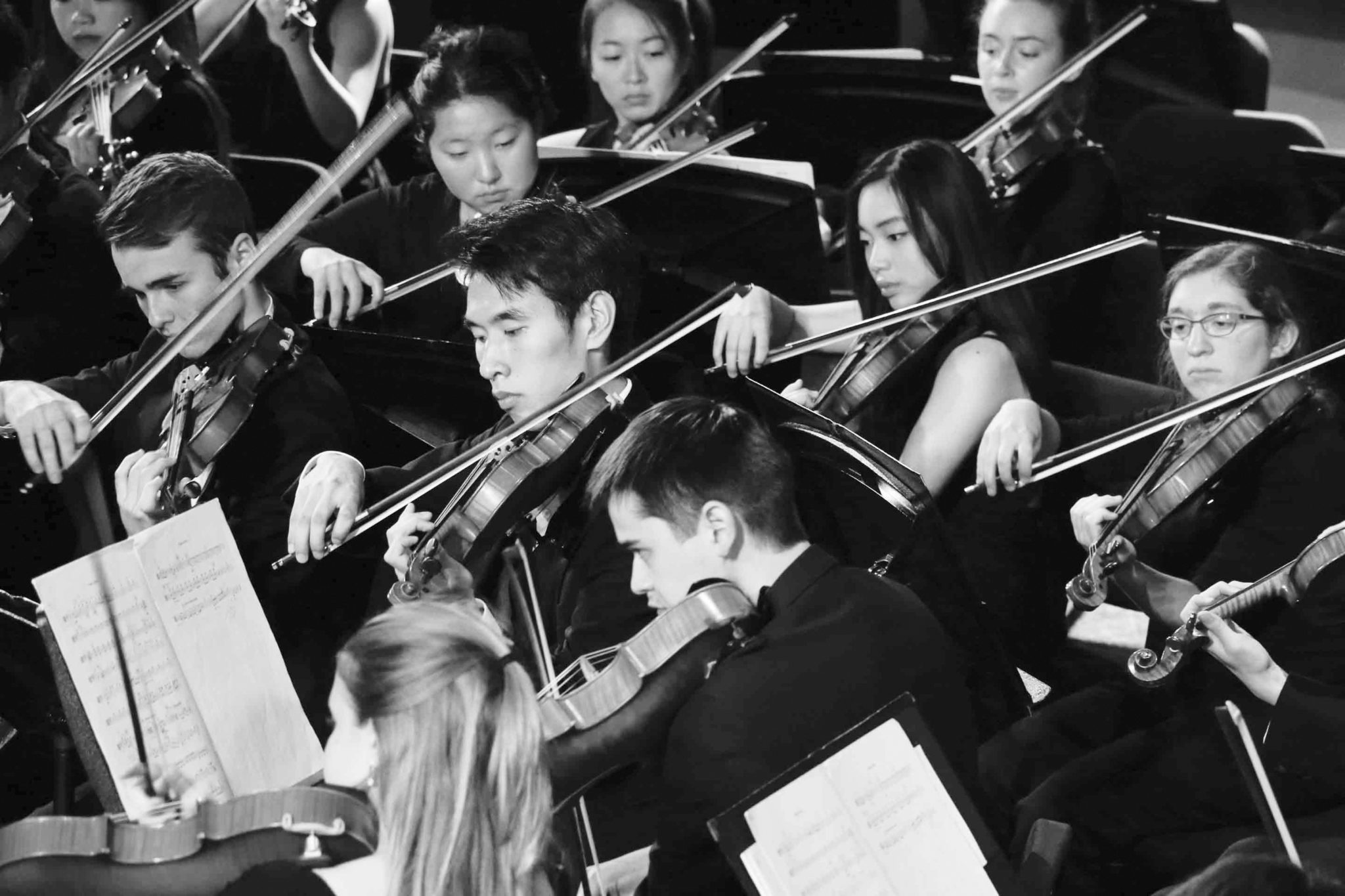
Is orchestra more athletic than football? According to Yale Symphony Orchestra co-president and clarinettist Jacob Sweet ’18, while football features a “52-man roster,” the YSO is “truly a 70 or 80 man roster, and everyone is playing at the same time.” This Saturday, September 23rd, the YSO tackles music of Bernstein, Smetana, Beethoven and Brahms in its 52nd season opener.
“The concert is not too long — it definitely won’t feel like you’re just sitting there waiting for something to happen,” says Sweet. Such prolonged intrigue may not be found at the Yale Bowl, as this weekend’s opponent is Cornell.
Of Brahms’ Third Symphony, the main piece on the program, YSO Music Director Toshiyuki Shimada says, “If you think of a Romantic Era symphonic sound, this is it. This Brahms symphony can be seen as the peak of Romanticism.” What exactly constitutes this Romantic symphonic sound? Think of lyrical, passionate melodies with waves of rich harmonies emanating from every corner of the Woolsey Hall stage. “Every corner” is to be taken literally — it’s a tight squeeze onstage with our massive team.
Saturday’s program starts off with 20th century American composer Leonard Bernstein’s “West Side Story” overture, which packs upbeat rhythms, recognizable tunes from the beloved musical, and heart-achingly beautiful melodies into about five minutes. The Bernstein overture promises to break from the stiff concert etiquette usually associated with classical performances, asking the audience to participate in a Latin dance-inspired section, shouting “Mambo!” on cue.
The overture also features several guest musicians: high school wind and brass players from the Yale School of Music’s Music in Schools Initiative, directed by lead teacher Ruben Rodriguez MUS ’11. This is the first collaboration between the YSO and the Initiative, which aims to share and spread music to schools in New Haven while allowing instructors the chance to effect change through the music they teach. Shimada hopes to include further collaborations with the Initiative’s students in future YSO seasons.
Next, the program relocates from the West Side of New York City to Prague with the “Moldau” segment of 19th century composer Bedrich Smetana’s “My Homeland.” The piece includes six movements that bring to life the landscape and spirit of Smetana’s native Czech Republic. The “Moldau” movement celebrates the famous river swirling through the city of Prague.
“Every time I go to Prague,” says Shimada, “I go to the Moldau River and take a walk, and the tune of this piece goes through my head.” In rehearsals, Shimada pushes the orchestra to envision this landscape as the musical river bubbles from its source, passes polka dancers at a peasant wedding and tumbles into rushing currents.
The first half of the concert ends with Beethoven’s Second Piano Concerto, featuring soloist James Carrabino ’20, winner of the William Waite Competition. The piece will be conducted by Ian Niederhoffer ’19, the YSO’s student assistant conductor.
YSO manager Brian Robinson cites the collaboration with Carrabino under the baton of Niederhoffer as an example of why YSO concerts are noteworthy events on campus. “We play to the campus,” he says, adding that the chance for Yale students to see their friends featured individually and in the orchestra is a reason to attend all of the YSO’s concerts throughout the season.
The next major concert is the YSO’s Halloween Show, which begins at 11:59 p.m. on Oct. 31. The annual show features a silent film created by students, accompanied by a live soundtrack from the YSO, in costume. According to Robinson, the Halloween Show has become “a definitive event of the fall semester on campus.” The show always sells out in minutes, and the only way to guarantee you’ll get a seat is to purchase the student season pass, which also includes admission to YSO’s four concerts throughout the season.
Sweet cites the season pass as an important way for students without much experience with classical music to get to know the genre. “It’s just amazing when these people, coming to see YSO for the first time, actually start getting into classical music and become really invested in something they hadn’t really thought of before,” says Sweet.
The YSO’s spring semester includes a performance of turn of the 20th century Austrian composer Gustav Mahler’s Fourth Symphony and “Till Eulenspiegel” a tone poem by Mahler’s contemporary Richard Strauss. Strauss’ piece has been previously presented at Yale, most notably in 1910, when Mahler, a distinguished conductor as well as composer, led the New York Philharmonic in Woolsey Hall.
Even with the YSO’s engaging and exciting repertoire, the community of members is also crucial to the orchestra’s success. Sweet mentions that the YSO was a main reason why many of the orchestra’s members chose Yale. Sweet adds, “You have a lot of musicians that could have gone to conservatories and ended up coming to Yale, knowing that the Yale Symphony Orchestra was a really great opportunity to play at a high level with a lot of people who are really passionate about music.”
Shimada confirms this passion in the YSO’s members. “Everyone loves music here.”
Contact Julia Carabatsos and Emma Mueller at julia.carabatsos@yale.edu and emma.mueller@yale.edu .







